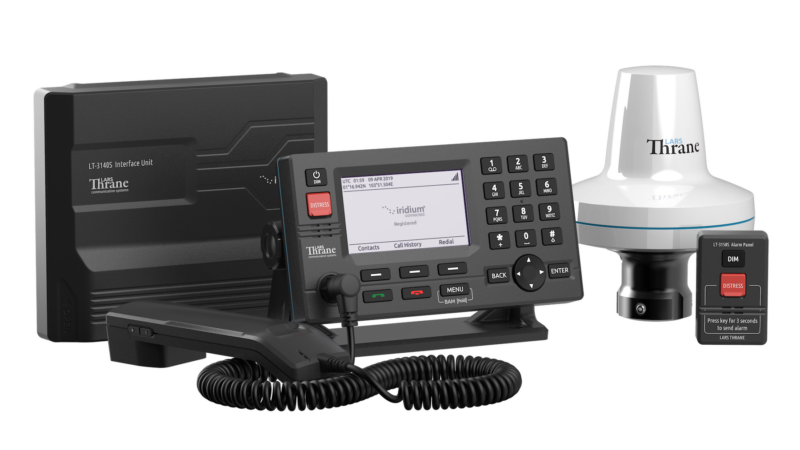Latest News

Iridium GMDSS terminal, the Lars Thrane LT-3100S. Photo: Iridium
Iridium Communications has started offering its real-time maritime emergency service, the company announced Tuesday. The service, Iridium Global Maritime Distress and Safety System (GMDSS), commenced operation on Dec. 11th, marking the culmination of years of work for Iridium.
GMDSS is a safety of life system that helps rescue mariners in emergency situations while at sea. Iridium will now directly compete with Inmarsat as one of only two companies authorized to provide GMDSS services. Until now, Inmarsat has been the only provider GMDSS-approved satellite communication services since the inception of GMDSS in 1999.
Iridium said its system is unmatched in terms of coverage and real-time communications capability. Iridium’s GMDSS service is built on the company’s upgraded satellite network and utilizes the company’s L-band satellite spectrum. The first terminal available is the Lars Thrane LT-3100S, which combines GMDSS services distress alert, distress voice, and maritime safety information. Iridium said the combination of all three services in one cost-effective terminal is a first for the industry and makes the service more accessible to smaller vessels that may not otherwise be able to afford the equipment.
Iridium formally began the process to become a recognized GMDSS satellite service provider in 2013, and the Iridium network was recognized for meeting all criteria required by the International Maritime Organization‘s (IMO) in May 2018. Iridium received formal authorization to operate the service in January 2020.
Iridium CEO Matt Desch said that there was no process for Iridium to start to provide GMDSS service, it had to be invented in partnership with the IMO, U.S. Coast Guard, and International Mobile Satellite Organization.
“When we started this process, there was no process. No company had ever tried to do what we have now achieved,” Desch commented. “Developing and qualifying a GMDSS system was extremely challenging, so we didn’t want to just do the minimum or what has been done before. We wanted to make our system more accessible, affordable and feature-rich.”
Get the latest Via Satellite news!
Subscribe Now